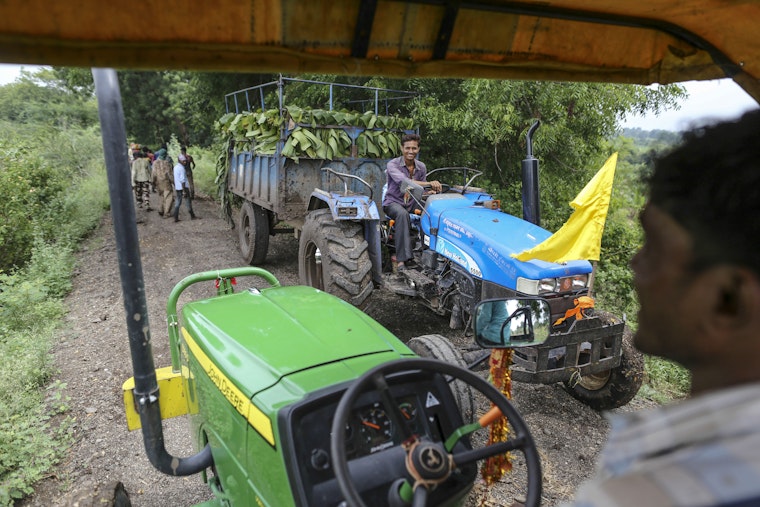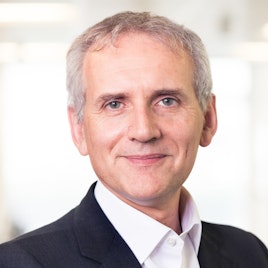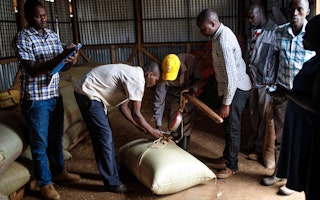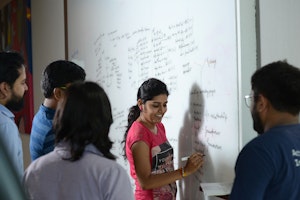India Delivers a Case Study in Successful Impact Investing
By Sean Hinton

EM3 Agricultural Services works at the muddy end of India’s ongoing story of economic growth. The company was founded in 2014 to provide smallholder farmers in India with access to mechanized equipment—not by selling it to them, but renting it, on demand, by the hour, through a platform that links them with equipment owners.
The economic challenges faced by smallholder farmers in India mirror the economic injustices faced by billions of the poor and marginalized around the world—largely forgotten, or exploited, by the private sector, and sidelined by policy choices designed to promote big business. But not necessarily.
Less than a year after testing the “Uber for tractors” concept, EM3’s owners turned for growth capital to Aspada, an investment fund set up in 2013 with a particular focus on, among other things, sectors of the Indian economy that were then largely ignored by mainstream investors.
Aspada had itself just been established by the Soros Economic Development Fund, the impact investing arm of the Open Society Foundations. Managed by a talented local team, Aspada sought out businesses that benefit the almost 500 million Indians who are living above the poverty line, but who are not part of the wealthier urban elites. Because of its mission to deliver positive social, economic, and environmental impact, it was prepared to accept higher levels of risk than a conventional investor, over a longer time period, and work with them to develop their business models.
In the case of EM3, Aspada’s investment led to further growth, which then attracted new, more mainstream investors. And in the fields, where a farmer’s plot of land may be four acres or less, the pay-by-the-hour machinery delivered productivity increases of around 20 percent for thousands of farmers, and secured the support of the state government of Rajasthan for a network of over 1,000 rental centers across the state.
Aspada invested in other businesses serving the needs of smallholder farmers, as well as businesses in other sectors. It financed Be Well Hospitals, which runs affordable, high quality health clinics offering affordable access to private medical care. It invested in Capital Float, which provides short-term working capital finance to small businesses without hard assets to use as collateral.
Altogether, by investing some $70 million in 17 such businesses, over the last six years, Aspada has not only impacted the lives of millions, but has shown the way for over $400 million of additional investment into its portfolio companies from global investors such as Sequoia Capital, Google, Ribbit Capital, OPIC, and Amazon, alongside numerous other local and international investors. It is exactly this kind of catalytic effect that Open Society seeks to achieve with its impact investment work.
Impact investments are all too often made at a distance from local realities and without representation of local voices. They are often structured in ways that incentivize risk-averse short-term decision-making. They usually involve alliances of investors who have widely divergent interests, resulting in compromises being made to the impact intentions of the founders.
Aspada was successful because a hugely talented local, first-time team was given the time and latitude to refine their strategy, and take risks, with little immediate pressure to perform. The capital we committed was delivered in stages, reducing the pressure to deploy large sums in a hurry. And the Soros Economic Development Fund SEDF fully funded the venture, relieving the team of the need to raise other capital and allowing them to stay focused on their impact agenda. All this, in the words of Aspada’s managing partner Kartik Srivatsa, involved “pushing the boundaries of conventional fund structuring.”
The Soros Economic Development Fund is now selling a controlling stake in Aspada and its portfolio to LGT Group, the international private banking and asset management group owned by the Princely House of Liechtenstein, to expand its own impact investing platform, LGT Lightstone.
The Soros Economic Development Fund will retain a minority stake in Aspada, reflecting its continued confidence in the business and its leadership, while redirecting investment gains to new impact projects in India and elsewhere. We believe this evolution, and the access to more capital that the partnership with LGT will bring, will allow Aspada to expand its reach, make larger investments, and follow-on further with its portfolio companies, all while maintaining its focus on profitable impact-first investing. We also hope to see a ripple-effect from Aspada’s success to the broader impact investing industry in the region, with more capital moving into the impact sector.
Economic inequality is on the rise globally, and the pressing need to use every tool, including investment, in service of people and planet, is growing. At the same time billions of dollars are being tagged by traditional private equity investors for broadly defined “impact investing,” with little accountability for what, if any, real impact is delivered and for whom. As a result, impact investment is at risk of becoming a generic term for any use of capital that doesn’t explicitly harm people or planet; “doing well by doing good” is on the verge of becoming simply another slick marketing slogan.
In this environment, we hope Aspada can serve as a valuable case study, showing some of what it takes to make effective impact investments that become a catalyst for broader positive change. That requires a readiness to take on risks to deliver social and economic benefits, in ways that can attract greater private sector investment over time, to create mutual benefit for all involved.

Until June 2022, Sean Hinton was director of the Open Society Economic Justice Program and chief executive officer of the Soros Economic Development Fund.

